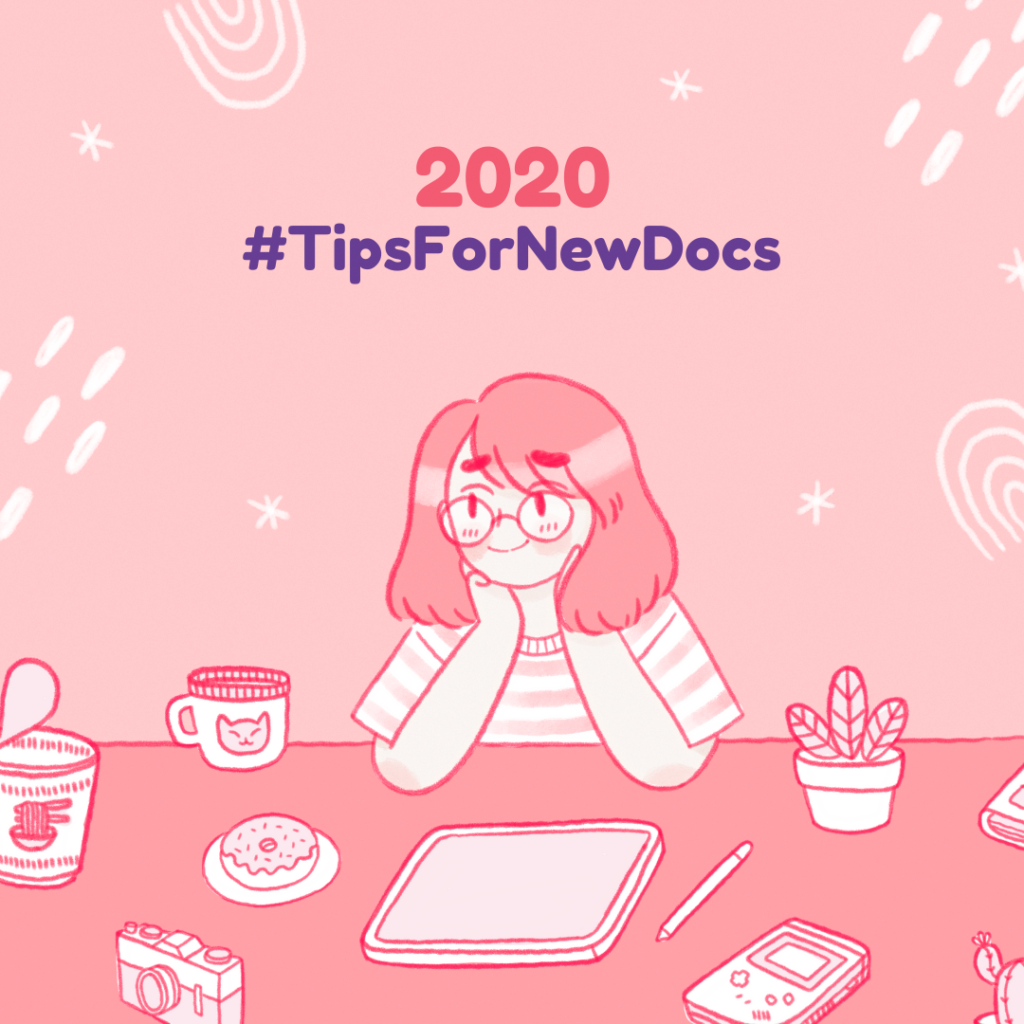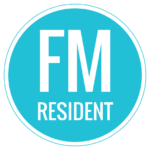
Every year Twitter lights up with this tag around July 1st. Enjoy my version.
Why the tips?
Because #MedTwitter can be great, and lift up our team across the expanse of the internet. Because we all remember that first day, week, month and year of residency, being a new intern and feeling like a fraud. Because a lot of people will make crappy, cruel jokes about July 1st (block ’em). Because you think you need it.
General Life Tips
- Set up autopay for all your bills after your second paycheck. If you didn’t setup a foolproof system in medical school pay for YNAB and keep that budget tight.
- Shower when you get home, you won’t do it later.
- Don’t sit on the couch if you don’t want to fall asleep.
- Eat as soon as you get out of the shower. Before you sit on the couch.
- Text and call your fellow interns. Start a group chat on Signal or Discord. Spend time together. Make them your bubble.
- Buy a crock pot and look online for ways to cook a week’s worth of lunches you can microwave. You really don’t want to live on the junk from the doc lounge or the cafeteria.
- Make one or two meals for lunches, and another set for dinners. Freeze them all (automatic ice pack!). Eventually you’ll have a good variety of frozen meals and can have something different every day. YAY.
- Each week you will have one day off. Always load the crockpot first thing in the AM or you will forget to do it and have a crappy week and be grumpy about it
- Get a lunch pack that stays cold so you can leave it somewhere other than the fridge lunches disappear from, if you don’t go the frozen crockpot meals route.
- If you live near a Costco or Sam’s Club get a membership (share with a co-intern!) and once a month go get all the snacks you need. And some kind of easy breakfast. You probably won’t continue those smoothies by day 3 of inpatient, so get some oatmeal or cereal or breakfast bars. Or pop tarts. Whatever will make you happy.
- Don’t go to the grocery store in scrubs, ever.
- Don’t skip taking a shower more than two days in a row. Your co-residents can smell you.
General Residency Tips
- Create a playlist that is longer than your drive to work, of songs that make you feel FIRED UP. #MedTwitter has some suggestions. I had a 10 minute drive and made a playlist that was songs like “Shake it Off” (Taylor Swift), “Confident” (Demi Lovato), “Girl Anachronism” (Dresden Dolls) so I could scream-sing at the top of my lungs going into work and feel unstoppable. Made me STRUT into that hospital.
- Don’t leave your stethoscope in the car, it will break embarrassingly after too much temp fluctuation (if AZ heat or WV snows)
- Snacks are vital. Get a backpack, fanny pack, messenger bag, purse or bag of holding. Keep all your snacks in there. And your stethoscope.
- Make an intern first aid kit:
- Immodium, Pepto Bismol, Tums
- Naproxen or Ibuprofen, and Tylenol
- Azo
- If you menstruate, pads/tampons
- Chapstick, deodorant, toothbrush and toothpaste +/- mouthrinse
- Ginger candies (in case you feel pukey, but don’t actually puke)
- Change of socks and underwear (vomit, urine or blood from others will make you want this, but it’s okay to leave in the car for those emergencies)
- You DO know stuff. One of my co-residents was always asking about weird zebra stuff, and we teased him about it all the time. Half the time it turned out it was real, and in his current practice it seems like zebra diagnoses just come looking for him.
- You will learn an astronomic amount from physician’s assistants and different types of nurses. You’ll also learn from EVERYONE who works in the hospital. The gift shop clerk, baristas, enviros, case managers, social workers, chaplains, medical assistants, techs, phlebotomists, patient’s families and friends, transport, other specialty residents, medical students and your patients. Pay attention. Really listen. And don’t be rude.
- If someone is rude to you try to be kind in return. Take a moment to realize we’re all in a pandemic and everything SUCKS and sometimes pausing to say “You seem upset, do you want to pause and start over, or talk about this later?” can be a gift.
- If they’re just a rude horrible person take the high ground and kill them with kindness anyways. They’ll hate it, but no one can report you for being annoyingly kind or saying “Ok, thanks for that, have a super duper awesome day, y’hear?”
- Help your co-interns when they’re on inpatient with little things (drop off snacks, happy notes, etc) because it makes their day brighter
- Create a bedtime routine that you can do every night. When you switch to nights, do your bedtime routine when you get home in the AM
- You have graduated medical school and taken at least two of your Step/Level exams. You’re a resident physician. Take pride in that, because it’s an accomplishment. Yes, you have more training to do. But you know physiology several of your seniors and some attendings have forgotten. You know a lot of medicine. Now, it’s time to hone your skills. Enjoy the learning.
- Download these apps – intern apps.
- Consider these books
- Bookmark these other resources.
Disclaimer: My residency had a team structure on inpatient – because Family Medicine has no per-resident cap on admissions per day, and max admissions per team was always a moveable goal post. Often the structure was 1 senior on nights, 2 seniors on days with 2 interns (+/- med students), then afternoons would be 1+1, as one senior and intern had afternoon clinic. This influences how my inpatient tips are given.
Inpatient Tips
- Get a GIANT water bottle and sip whenever you are not talking
- Pee whenever there is a break. Ask a senior to hold the phone/pager for your pee break.
- Find a pooping bathroom and a backup pooping bathroom.
- Don’t be late. Even if your seniors are, it will throw everything off and cause bad team dynamics.
- ALWAYS answer the phone with your title. You earned it, and on the phone it’s important to identify yourself. You’re not a medical student named Pixie, you are Dr. Sanders. “Hello, this is Dr. Sanders with Orange Team, how can I help?” is a great start.
- If the other person on the phone doesn’t identify themselves be polite, but interrupt “I’m sorry, I didn’t catch your name? Oh, Dr. Doolittle, hello” – this is usually enough for a senior to grab the phone, honestly.
- When nurses, techs or case managers call from the floor they will give patient room numbers, not names, to protect patient identity (not to annoy or confuse you). It’s your job to say “Oh, room 452, Ms. Swift, yes?” so they can confirm and you can both be sure you’re talking about the same person. Of course, if you are not in a private space don’t do that.
- Senior residents and attendings will ask you hard questions on rounds. It’s okay to say “I don’t know, let me check on that lab” and “I don’t know, but I will look on UpToDate right now”
- Nurses may page/call and ask “Are you sure you want to do X for this patient?” Sometimes this is an experienced nurse trying to help you avoid a mistake. Sometimes this is a new nurse unsure about the order. You can’t tell which yet, but you can say “Oh, let me double check and call you back” and if your notes don’t answer the question ASK your senior. Then immediately call back!
- When a nurse asks “Can you come look at this patient” you should run. They’ve seen them all day and notice the scary changes early.
- If you’ll be on longer than 12 hours have a change of socks, it’s magical.
- Cheap compression socks last a few months, so I never found out how long expensive ones last. Great for inpatient, when you round forever and ever and ever.
- Don’t eat while you type. The keyboards are already disgusting, and you need to walk away for 60 seconds anyways. Have a mindful minute snack. ENJOY that little nom nom.
- Remember, when you go in a patient’s room, if you turn off the TV, move the bed or change anything PUT IT BACK BEFORE YOU LEAVE. Otherwise, you’re a monster. And give back the remote.
- You will be asked if you heard a murmur, or asked about a medicine, or checked for a certain exam. Be honest, and say no.
- ASK your senior for help with your plans, your orders, your learning. They want to help you.
- ALWAYS CALL your senior if you’re worried about a patient.
- ALWAYS ask about code status (hey, ask your senior/attending to model this for you ASAP)
- Patient and family may not know their meds, but the pharmacy does. Call the pharmacy and ask them what meds are in their list AND when did they last pick them up? Where they 30 or 90 days? If it’s a long list most pharmacies are happy to fax it to you
- Figure out the hospital fax machine # closest to you and save that in your real phone, along with cafeteria hours.
- Switching to night tips
- Good quality ear plugs + RainyMood app on your phone
- A sleeping mask
- BLACK OUT CURTAINS (then buy velcro tape, because you want to seal those tight and never see a crack of light in your bedroom)
- After a long awful night shift I would come home, do my bedtime routine (wash face, put on pajamas, drink a few sips of chamomile tea and eat something full of carbs like pasta or bread) and then turn on rainymood and CRASH OUT fast. Sure, I gained weight in residency, but I got some sleep before my broken circadian rhythym woke me a mere four hours later
Clinic Tips
- Avoid door-knob questions. No matter what the reason for visit says, I say “I see why you asked to come in, but I still like to ask YOU ‘What brings you in today?'”- and if the real reason is something else you get straight to their main concern.
- If I don’t state that I know why they SAID they wanted to come in a lot of people get upset assuming I haven’t looked at the chart. Since I have, I don’t want to waste that time. This intro was perfected over residency with lots of false starts. 🙂
- Don’t interrupt. Don’t talk for 20 seconds. If you feel the urge to do so, bite your tongue. You will remember the question you wanted to interrupt them with.
- Let them set the agenda. After they tell you about #1, before you start asking questions, ask “Is there anything else we need to talk about today?”
- Read about GAMe levers. This helped me become focused in clinic as an intern. You may not do clinic for months, or you may do televisits. Either way, remember this link.
- Translate. You’re a professional worrier, and a medicalese translator. Use your proper terms, and then translate them into words normal humans can understand. Draw things, tell stories, anything to make a patient understand why something esoteric like “high blood pressure” matters.
- Write ethically. Learn how to write notes without judgement language. Why? You have terrifying power and may prevent a patient getting an organ transplant a decade from now, because of what you write today. Or, when a patient reads your note on the patient portal they may lose trust in you.
- Get the ask. At the end of a visit I like to say “What questions or concerns do you have?” (NOT do you have any questions, which they will say no to). If they say no, I will repeat the plan, then ask “Did any questions or concerns about the plan pop up?”
I hope this was helpful for you. Be sure to join Twitter (anonymous is a-okay) and check out all the tips other doctors are sharing under the #TipsForNewDocs tag during the month of July.


Pingback: Tips for New Seniors (PGY2 and PGY3!) | FM|Resident.com